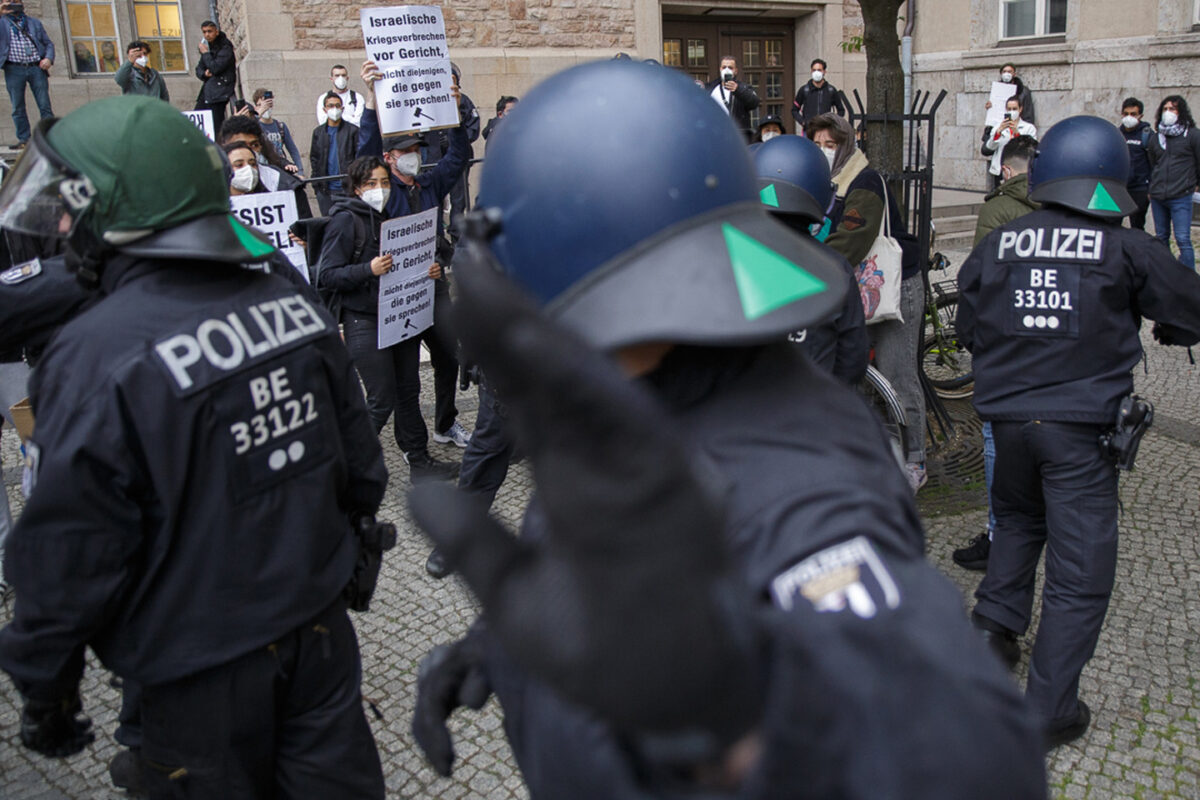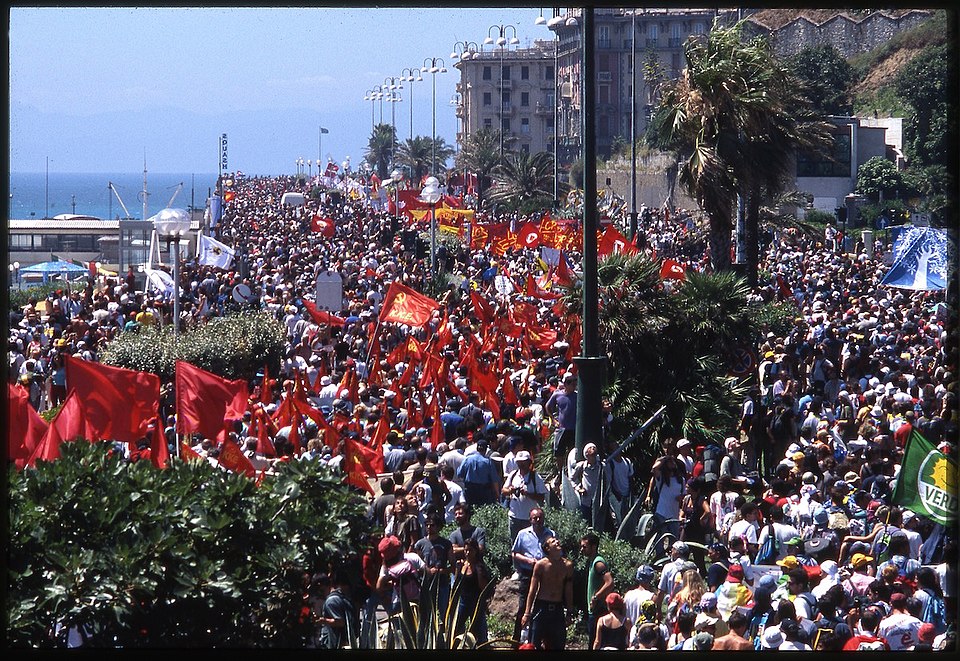For almost two years, social media and bourgeois media in Germany have reported from parallel universes, one a bizarro mirror of the other.
In the Instagram and Tiktok universe, people get an endless sequence of horrific images: heavily armed cops assaulting peaceful demonstrators at Palestine solidarity protests almost every day. This has drawn the attention of Amnesty International, the Human Rights Commissioner of the Council of Europe, and other international organizations.
Meanwhile, people who get their news from a German newspaper or the Berliner Fenster in the subway hear the exact opposite: every time, big capitalist media apparatuses report that police were attacked by demonstrators. There is never a shred of evidence for this. But most so-called journalists in Germany see it as their duty to transcribe whatever police say.
A particularly dramatic example was the coverage of the Nakba demonstration in Kreuzberg on May 15. The police had tried to ban it, but a court had allowed a rally. Over 1,000 people showed up, surrounded by hordes of cops. As countless videos documented, these black-uniformed thugs proceeded to beat any demonstrator within reach.
By the evening, the police had made a particularly dramatic claim. “We have a seriously injured officer who was dragged into the crowd and literally trampled,” in the words of a spokesman. A cop was admitted to the hospital with a hand fracture and a spinal bruise. Every major outlet repeated this version, from the far-right tabloid BILD to the supposedly serious Tagesspiegel to the avowedly liberal Süddeutsche. None of them relied on reporters on the scene—none asked the cops for evidence.
Politicians took up the narrative. Berlin’s mayor Kai Wegner (CDU) (who loves antisemites, by the way) referred to a “cowardly, brutal act of violence.” Neukölln mayor Martin Hikel called this “attempted murder.” Alexander Dobrindt (CSU), now the interior minister, said in parliament that this happens “every day.”
Almost two months later, a big German newspaper finally got around to checking the facts. Or rather, the Süddeutsche had Forensis, the Berlin branch of Forensic Architecture, do it for them. And while the video scenes are chaotic, it’s absolutely clear that Officer 24111 was not dragged into the crowd or knocked over at any point. His hand appears to be injured after punching a demonstrator in the face—in other words, he might have broken it on someone’s face.
Why did he subsequently collapse and require medical attention? The video offers no clues. I can offer some speculation. Before these violent frenzies, Berlin cops often have been observed to display tics that are commonly associated with the use of stimulants like cocaine or amphetamines: twitching, jumping, and of course extreme aggression. While my policy is to never talk to police, I have occasionally talked to people who know police personally, and I hear that steroid abuse is rampant. Just last year several cops were investigated for using cocaine which they had confiscated.
Is it possible that 24111 collapsed from overexertion after mixing different drugs? Was this the “attempted murder”?
I predict that we will never know for sure. I doubt that either cops or prosecutors will ever offer an explanation—the case will be quietly dropped sometime next year. Not a single politician will apologize for spreading fake news. No major media outlet will issue a correction. Even Süddeutsche has neglected to correct their original false reporting.
Now, most major outlets have reported on the debunking—yet there is no hint of critical self-reflection. The video analyzed by Forensis did not just suddenly pop up—it was available on social media immediately, and any semi-serious reporter could have tried to find the truth before publishing a report. Heck, I was on vacation in a distant land, and even I could find video evidence while sitting at the beach!
I also predict this will also not lead to a reckoning among bourgeois journalists. Policing is the only profession whose members lie so consistently and so blatantly that we require them to film themselves. Yet most people who call themselves journalists are happy to repeat whatever cops say. In a sense, I get it—that is far easier than doing actual journalistic work.
Red Flag is a weekly column on Berlin politics that Nathaniel Flakin has been writing since 2020. After moving through different homes, it now appears at The Left Berlin.




